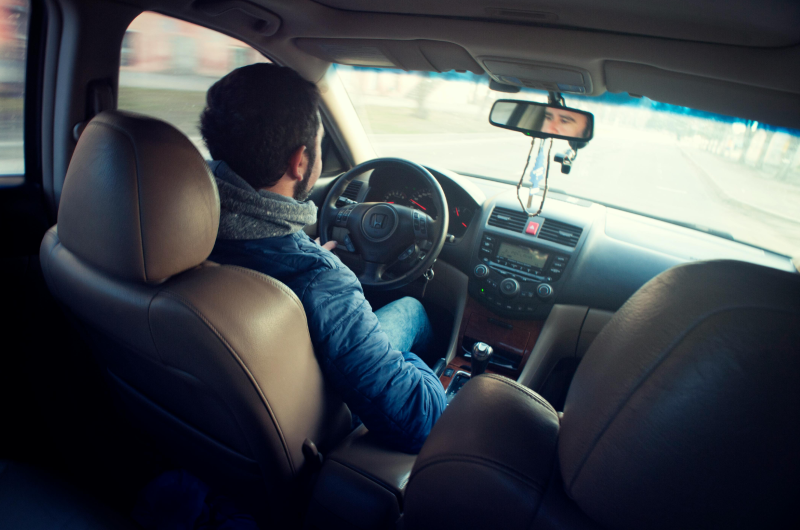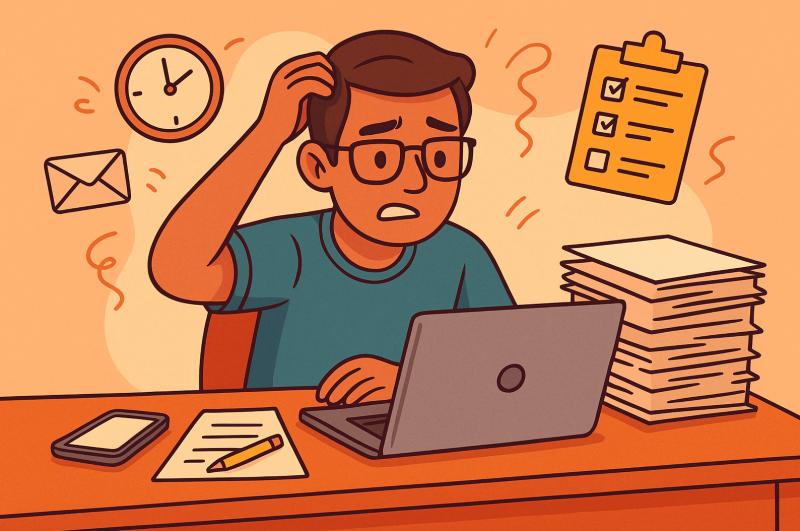
Long drives can trigger anxiety—even as a passenger. Here’s why it happens, what it means, and how to stay grounded when you’re stuck on the road.
Introduction
For some, a long drive sounds peaceful—rolling landscapes, music playing, no responsibilities but to get from one place to another. But for others, the idea of being in a car for hours—especially when you’re not in control of the wheel—can be deeply unsettling. Whether it’s the open freeway, unpredictable traffic, or just the feeling of being “trapped,” long drives have a way of stirring up quiet but powerful anxiety.
You’re not imagining it. And you’re not alone.
Why Long Drives Can Feel So Unsettling
There are many reasons long drives can feel stressful, even if nothing is going “wrong.” One of the most common is the lack of control—you’re not the one driving, and you can’t just get out and walk away. That alone can trigger feelings of vulnerability or helplessness, especially if you’ve ever experienced panic attacks or anxiety in confined spaces.
There’s also the mental weight of distance—knowing you still have hours to go, with nowhere to be but inside your head. This anticipation can create a slow, creeping discomfort, even before the drive begins.
It’s Not Just about the Car
For some, the anxiety goes deeper. Long drives might bring back memories of past experiences—road accidents, tense family trips, or moments of emotional distress while traveling. The car becomes a container for old feelings: fear, conflict, boredom, restlessness.
Even being a passenger can feel like you’re surrendering your safety to someone else. If you’re already prone to anxiety or hypervigilance, it can be hard to relax when your mind is scanning for danger—especially at high speeds or in heavy traffic.
Common Thoughts That Fuel the Anxiety
- What if I panic and can’t get out?
- What if something happens and we’re far from help?
- I feel trapped and restless.
- I hate feeling like I have no control.
- I don’t want to be a burden by asking them to stop.
These thoughts aren’t irrational—they’re rooted in a nervous system trying to protect you. But when they go unchecked, they can spiral quickly.
Grounding Yourself during the Drive
You don’t have to suffer in silence or pretend everything’s fine. There are gentle ways to help your body feel safer, even when you can’t change the situation:
- Tell someone how you feel. If you’re with a trusted person, let them know you’re feeling anxious. They might be more understanding than you think.
- Bring comfort items. Music, a weighted blanket, snacks, calming scents—anything that soothes you can help anchor you in the present.
- Use your senses. Look out the window and describe what you see in your mind. Notice colors, shapes, light.
- Breathe with intention. Try box breathing (inhale for 4, hold for 4, exhale for 4, hold for 4) to regulate your nervous system.
- Use tactile distractions. Carry a small object you can fidget with—like a smooth stone, putty, a textured keychain, or a grounding bracelet. Keeping your hands busy can help you stay out of your head.
- Engage your feet. Gently press your feet into the floor of the car and notice the contact. Wiggle your toes in your shoes. This reminds your body that you’re here, safe, and grounded.
- Listen to something immersive. Try an audiobook, calming podcast, or guided meditation. Listening to someone’s voice can feel soothing and help occupy your mind.
- Tap gently on your body. Try butterfly tapping—cross your arms over your chest and alternate tapping your shoulders, left and right. This bilateral stimulation can help calm your nervous system (used in EMDR therapy too).
- Try a scent anchor. Carry a calming essential oil or scented item you associate with comfort (like lavender or peppermint). Inhaling a familiar scent can quickly shift your state of mind.
- Chew gum or eat a mint. The act of chewing helps stimulate the vagus nerve, which is connected to relaxation and emotional regulation.
Give Yourself Permission to Dislike It
You don’t have to love long drives. You don’t have to explain away your discomfort or convince yourself it’s no big deal. Sometimes naming the anxiety—gently, without judgment—is enough to take away its edge.
It’s okay to need breaks. It’s okay to ask for a moment of quiet. It’s okay to not feel at ease just because you’re “only a passenger.”
You’re Allowed to Protect Your Peace
Your comfort matters, even on the road. Whether you need to speak up, bring grounding tools, or plan ahead for stops, honoring your anxiety is a form of self-respect—not weakness. There’s no shame in needing support, or in acknowledging that even everyday experiences like a road trip can carry emotional weight.
You’re doing your best. And that’s enough.
References:
- American Psychological Association. (2023). Anxiety and feeling out of control
- Anxiety and Depression Association of America (ADAA). (n.d.). Travel anxiety and coping strategies
- Hendriks, S. (2022). The Little Book of Calming Techniques.
- Psychology Today. (n.d.). Why lack of control causes anxiety
Originally published by Heed to Heal, 07.21.2025, under the terms of a Creative Commons Attribution-NonCommercial-NoDerivatives 4.0 International license.







